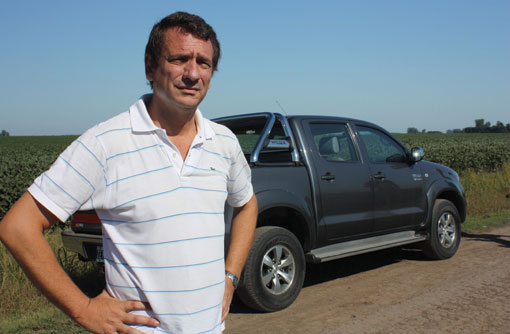Federico Rolle considers signing up to the Certified Agriculture scheme

In Argentina, the Certified Agriculture scheme is a quality management system for extensive farming systems, and with no-till, it sets out agricultural practices that growers sign up to. Members are audited against key indicators.
No-till is not just about direct drilling, the concept is much broader and includes a set of best practices. It must be accompanied by good pest management, strategic fertilisation, good rotations and environmental protection.
The aim is to incorporate these practices to benefit both growers and the wider public. Some overseas markets already have certain sustainability requirements and we can take advantage through the scheme.
As part of the scheme, growers keep systematic records and have management plans that help them to achieve their intended production targets and become more efficient in the process. It also helps growers make better decisions and identify any changes that are needed.
Taking soya bean as an example, there is currently no premium for extensive production. But the trend is that countries will require buyers to differentiate the origin of the raw material.
In my particular case, I am considering joining Certified Agriculture for the next crop year (2012/13), as part of my medium to long-term vision. What I am sure of is that global food demand will see an increase in food certificates.
Export markets may be tempted to increase their demands. Many of them are under environmental pressure, and markets with existing requirements include the EU, USA, Japan and Korea. Other markets which may soon have potential requirements include countries in the Middle East and Asia, among others.
Certified raw materials may not be sold at a better price, but are essential for capturing new markets. That’s where all farmers, like myself, have to work hard in order to develop a sustainable export market in the long term.

